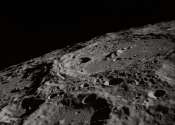Scientists help recover gases from moon rock time capsule
Scientists from Washington University in St. Louis are helping to recover gases from a container of lunar soil that astronauts collected and sealed under vacuum on the surface of the moon in 1972. The effort is part of NASA's ...









